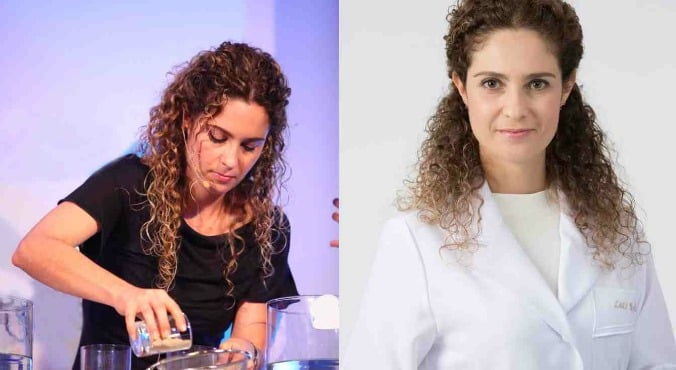
Image: Lais Koelle.
If you read our first interview with hair scientist, Lais Koelle (Pantene Senior Scientist) then you already know she knows things about your hair that you never even thought about. Of course you had more questions, so we went back and got those answered too.
1. Why do things like pregnancy change your hair texture and colour? – Nicky.
During pregnancy there are a lot of changes the body goes through, like for example different hormone levels. Some pregnant women claim to have shinier, stronger and more beautiful hair, some women say their hair gets thicker (probably due to reduction in hair fall for some women during pregnancy), while others see no difference at all.
As for colour, there is no technical evidence that the hair colour per se will be impacted, but if a woman claims to have shinier and stronger hair, that will definitely change the way colour is seen, and it could be perceived as a “better colour” even though technically it is the same colour.
2. I’ve read that for some people it’s better to wash with conditioner first then shampoo afterwards. Is that true? If so why? And who should do it? – Lin.
I’ve seen this trend before, it seems it goes and comes back from time to time.
In my opinion, when using a good quality, gentle shampoo, there is no reason technically to use conditioner before shampooing. This is because normally shampoos are made to clean the scalp and hair by removing oil, dirt and residues from styling products.
By using conditioner before the shampoo, the shampoo will need to work harder to remove the conditioner that was applied on top of its normal job, which is removing everything that accumulated on the hair since the last wash.
3. Is it ever possible to fix split ends without cutting your hair? What causes them in the first place? – Michelle.
The best way is to avoid formation of split ends. Split ends can occur due to a few factors:
Environmental damage:A protein called keratin makes up 80% of hair. One of the main causes of hair damage is keratin loss, especially at the ends. Environmental impurities are a contributing factor in the creation of free radicals, especially when hair is exposed to the sun. Free radicals attack the keratin protein inside your hair, resulting in keratin loss, and a hollowing of the hair structure. The antioxidant in the new Pantene shampoo formula with keratin damage blockers helps neutralise metal impurities, thereby avoiding the formation of free radicals. This therefore reduces the amount of damage they can cause.